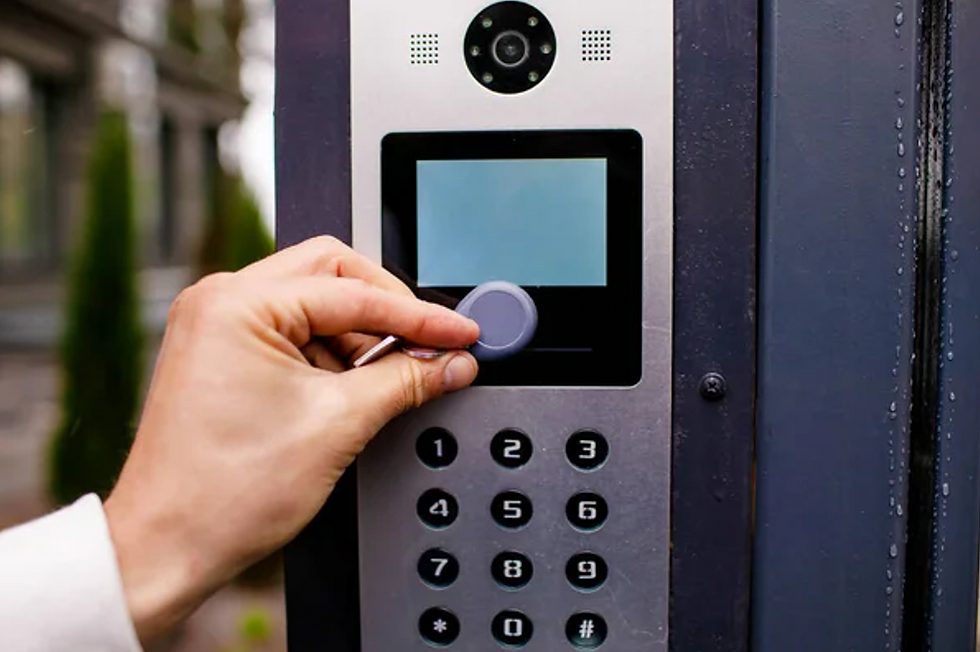“DO NOT DUPLICATE”: DO THESE THREE LITTLE WORDS REALLY PROTECT YOUR KEY?
- Nov 11, 2024
- 4 min read
Updated: Nov 12, 2024
A key, though just a small piece of metal, is all that stands between an individual and his or her entrance to your property. It’s no wonder that you are hesitant to give out keys and increase your risk of theft or damages.
However, you can’t always avoid that situation. Perhaps you have an employee that arrives to work before the rest of your staff. Or you might rent out your property and obviously need to grant your tenant access in and out at all hours of the day. You can install electronic access control systems or find other solutions, but it might not be efficient or possible to change your locking mechanism.
If you are going to hand out that key, you want to cut out as much risk as possible. You need to keep track of all copies, which means your employees and tenants cannot lose or duplicate the key you give them. How do you enforce this rule with your key holders?
You’ve probably seen the words “Do Not Duplicate” on some keys. Does this warning actually prevent key duplication? What other steps can you take to increase your security?
LAWS REGARDING KEYS
You shouldn’t let the following information discourage you, but no law exists in Ontario to keep your tenants or other acquaintances from duplicating a key without your permission. As official as the message may look, the words “Do Not Duplicate” are more of a request from you to the key holder. Nothing will stop that individual from taking the key to a hardware store to make a copy.
Then why add a “Do Not Duplicate” message to your key? Consider the following reasons.
The key holder will think twice about making a copy of the key. You can set a rule against key duplication in your company policy or your rental agreement, and the message on the key can serve as a reminder of that commitment.
If a professional locksmith receives a request for key cutting in Markham or Scarborough and sees “Do Not Duplicate,” he or she should at least ask questions about the situation. Non-professionals, however, will usually replicate any key if they have the appropriate blank.
Although someone who disregards your request would likely hide the extra key from you, you can distinguish the copy, which has no message, from your original key.
“Do Not Duplicate” keys will not offer increased security by law, but they can solidify an agreement between you and the person who you trust with that key.
RESTRICTED AND HIGH-SECURITY KEYWAYS
Even if you trust the people you work with or rent to, you probably want more assurance of your safety than the empty threat of “Do Not Duplicate.” Luckily, you do have some key options that are stronger than those three little words. Try these improved versions of the traditional key lock system.
Restricted Keyway Locks
First, look for a restricted keyway lock. The problem with average keys is that many locksmiths or stores offering key cutting could own the key blank for your product. The key blank is a key before someone cuts the bitting, or the design that will actually move the locking mechanism.
With restricted keyway locks, only one locksmith controls the key blanks you need. The key holder would need to find your personal locksmith—and even then, the locksmith will check a list to see who is authorized to reproduce the key. Business owners, landlords, and other property owners always know how many keys exist and who ordered them.
In this case, the law prohibits locksmiths from cutting a restricted key for or giving one to an unauthorized individual. Some manufacturers even patent their key blanks so only approved companies can reproduce those keys.
High-Security Locks
In addition to that protection, look for a high-security lock. A typical lock has thousands of key combinations, but a high-security lock has millions of potential combinations. Its security features prevent thieves from picking or bumping the lock. Make sure to ask your locksmith about the brand first because manufacturers may define “high security” in different ways.
High-security locks on their own may not be the best option since your key holders can still take them down to the store to make a copy. For the best protection, you can purchase restricted keyway locks with high security. The additional security features, combined with the inability to duplicate the key, will keep your property safe and your mind at ease.
ASK YOUR LOCAL LOCKSMITH ABOUT YOUR OPTIONS
If you experience a break-in or lose a key, you would go to a locksmith to change your locks and resolve the issue. Why not visit your locksmith in Markham, or a locksmith in Scarborough, to enhance your security before danger strikes? If several people need access to your office or rental building, contact a locksmith in your area and learn what precautions can protect your property. For key cutting in Markham or a surrounding area, be sure to give Affordable Lock a call!
Affordable Lock is a locksmith in Markham serving the Greater Toronto Area, including Scarborough, Aurora, North York, Newmarket, Richmond Hill, Vaughan and Stouffville. With over 30 years of experience, we pride ourselves on looking after your commercial locksmith needs. Affordable Lock’s showroom in Markham showcases a wide selection of keys, locks and an assortment of other security products for your home or business. Whether you are looking to upgrade your home or business’s security, or solve security issues, Affordable Lock Services Inc. in Markham is here for you! Give us a call today.



